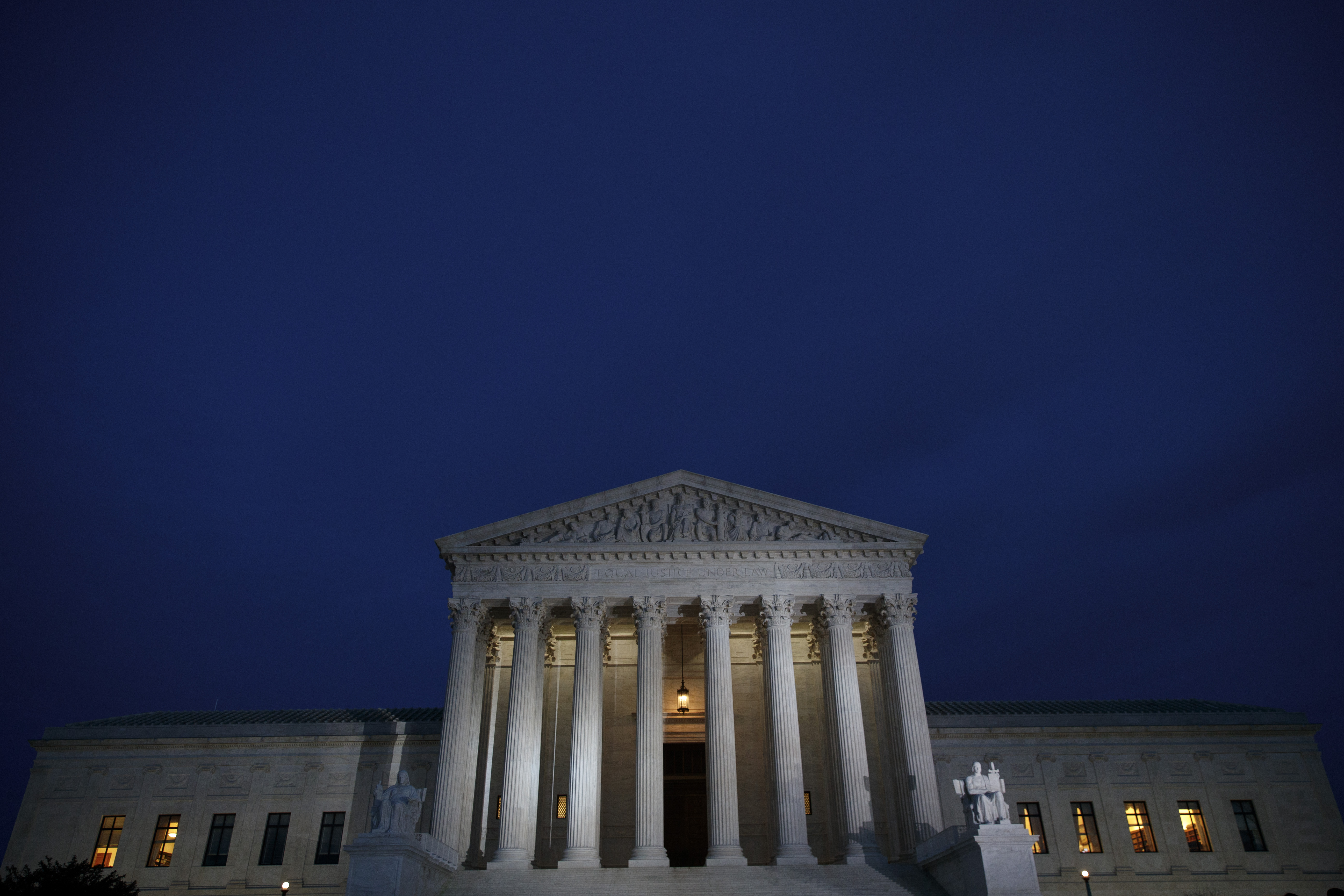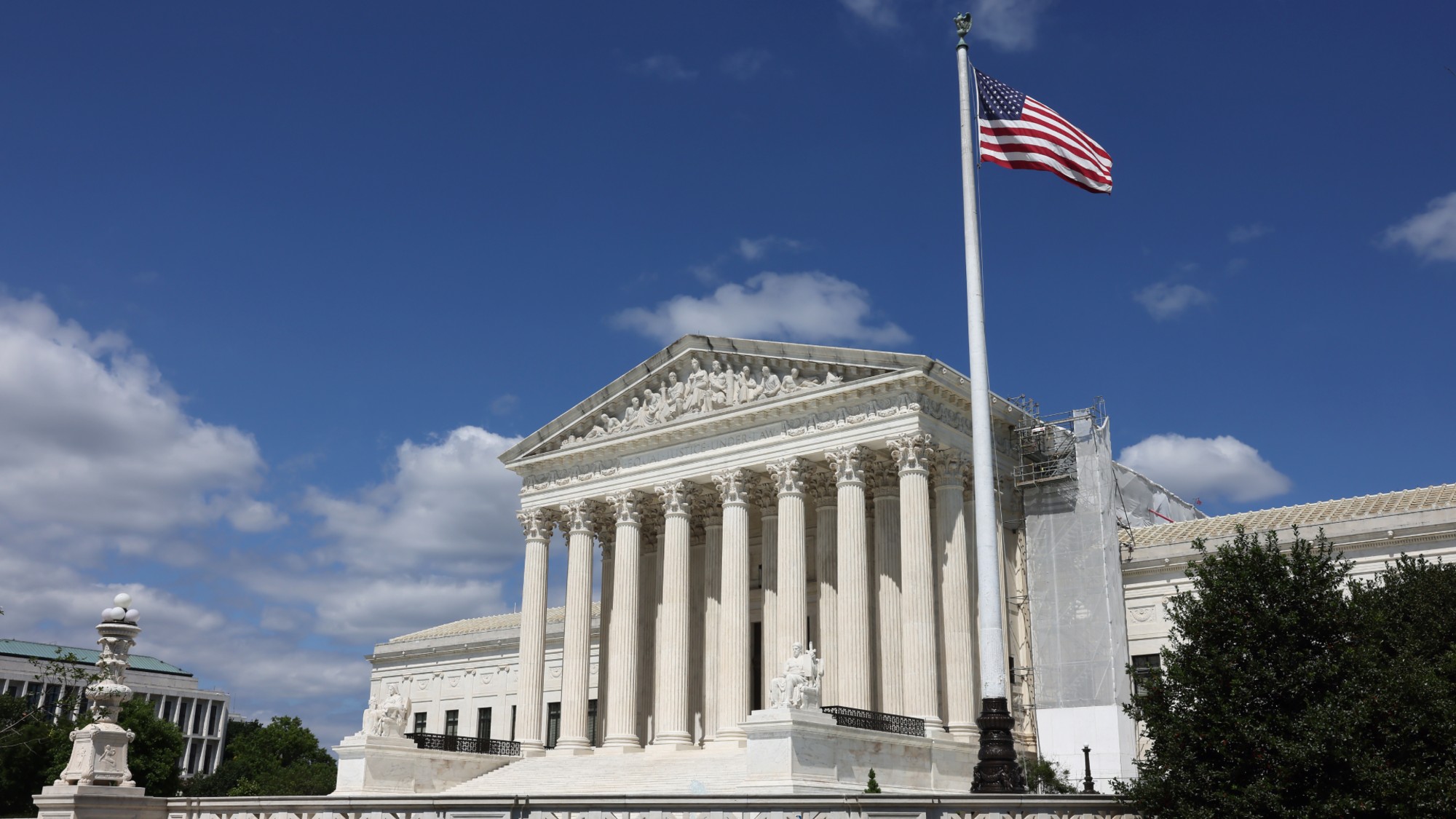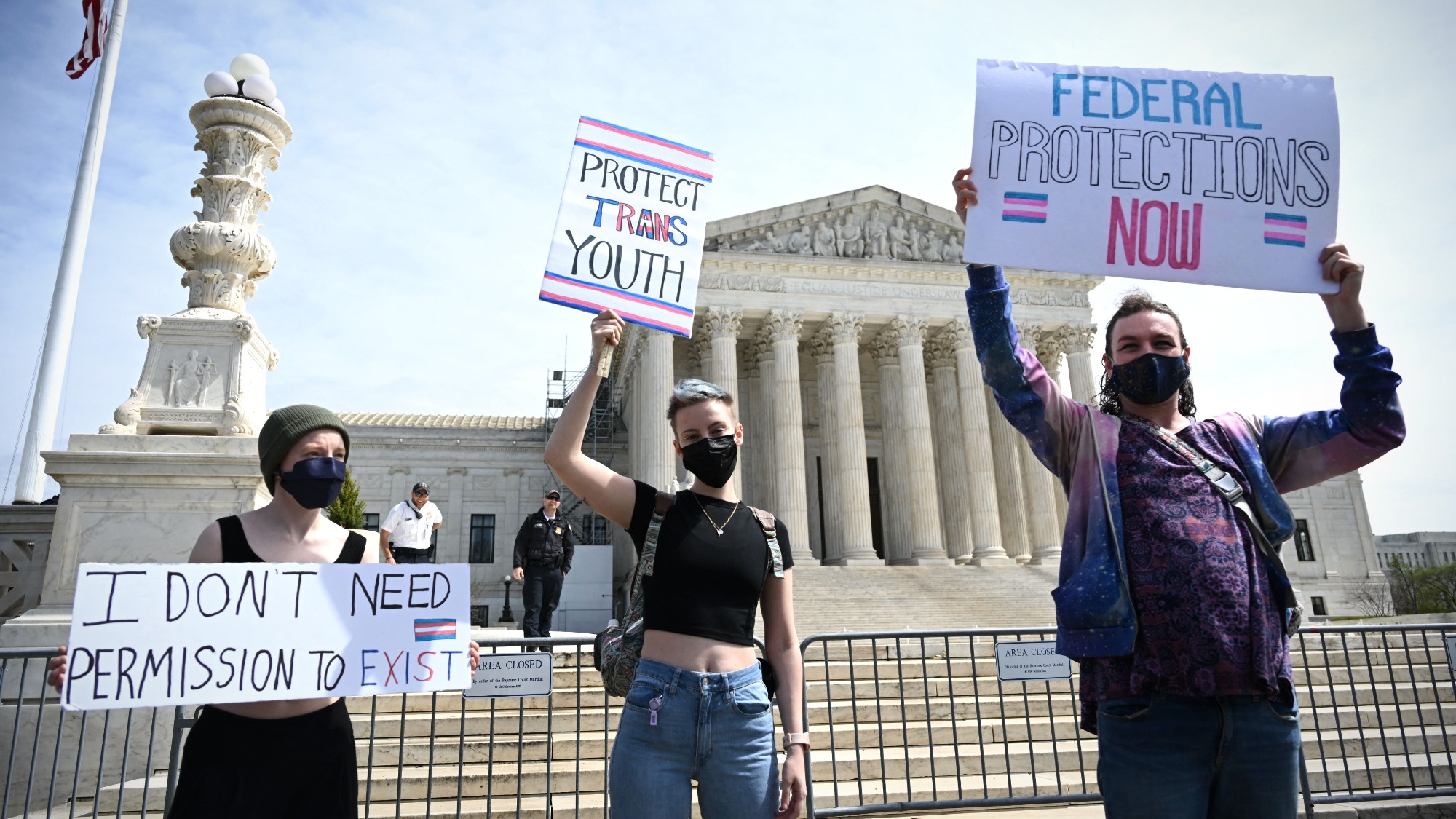Supreme Court refuses to block Texas' restrictive abortion ban


A free daily email with the biggest news stories of the day – and the best features from TheWeek.com
You are now subscribed
Your newsletter sign-up was successful
A 5-4 Supreme Court early Thursday rejected an emergency request to block Texas' six-week abortion ban.
Chief Justice John Roberts joined the three liberal justices in dissent. Texas Gov. Greg Abbott (R) signed the law in May, and it went into effect midnight Wednesday. Under the law, abortions are prohibited once an ultrasound can detect what lawmakers describe as a "fetal heartbeat." This is typically around six weeks, which is before many women learn they are pregnant. The law is enforced by private individuals who can earn $10,000 bonuses for successful prosecutions.
The American College of Obstetricians and Gynecologists has said "fetal heartbeat" at this stage is not an accurate term, as it is "actually electrically induced flickering of a portion of the fetal tissue that will become the heart as the embryo develops."
The Week
Escape your echo chamber. Get the facts behind the news, plus analysis from multiple perspectives.

Sign up for The Week's Free Newsletters
From our morning news briefing to a weekly Good News Newsletter, get the best of The Week delivered directly to your inbox.
From our morning news briefing to a weekly Good News Newsletter, get the best of The Week delivered directly to your inbox.
Abortion providers and reproductive rights advocates tried to block the law before it went into effect, arguing that it makes women in the state lose constitutionally protected access to abortion. In an unsigned order, the Supreme Court said in "reaching this conclusion, we stress that we do not purport to resolve definitively any jurisdictional or substantive claim in the applicants' lawsuit. In particular, this order is not based on any conclusion about the constitutionality of Texas' law, and in no way limits other procedurally proper challenges to the Texas law, including in Texas state courts."
A free daily email with the biggest news stories of the day – and the best features from TheWeek.com
Catherine Garcia has worked as a senior writer at The Week since 2014. Her writing and reporting have appeared in Entertainment Weekly, The New York Times, Wirecutter, NBC News and "The Book of Jezebel," among others. She's a graduate of the University of Redlands and the Columbia University Graduate School of Journalism.
-
 Local elections 2026: where are they and who is expected to win?
Local elections 2026: where are they and who is expected to win?The Explainer Labour is braced for heavy losses and U-turn on postponing some council elections hasn’t helped the party’s prospects
-
 6 of the world’s most accessible destinations
6 of the world’s most accessible destinationsThe Week Recommends Experience all of Berlin, Singapore and Sydney
-
 How the FCC’s ‘equal time’ rule works
How the FCC’s ‘equal time’ rule worksIn the Spotlight The law is at the heart of the Colbert-CBS conflict
-
 How far does religious freedom go in prison? The Supreme Court will decide.
How far does religious freedom go in prison? The Supreme Court will decide.The Explainer The plaintiff was allegedly forced to cut his hair, which he kept long for religious reasons
-
 The Supreme Court case that could forge a new path to sue the FBI
The Supreme Court case that could forge a new path to sue the FBIThe Explainer The case arose after the FBI admitted to raiding the wrong house in 2017
-
 ABC News to pay $15M in Trump defamation suit
ABC News to pay $15M in Trump defamation suitSpeed Read The lawsuit stemmed from George Stephanopoulos' on-air assertion that Trump was found liable for raping writer E. Jean Carroll
-
 Judge blocks Louisiana 10 Commandments law
Judge blocks Louisiana 10 Commandments lawSpeed Read U.S. District Judge John deGravelles ruled that a law ordering schools to display the Ten Commandments in classrooms was unconstitutional
-
 Supreme Court to weigh transgender care limits
Supreme Court to weigh transgender care limitsSpeed Read The case challenges a Tennessee law restricting care for trans minors
-
 ATF finalizes rule to close 'gun show loophole'
ATF finalizes rule to close 'gun show loophole'Speed Read Biden moves to expand background checks for gun buyers
-
 Hong Kong passes tough new security law
Hong Kong passes tough new security lawSpeed Read It will allow the government to further suppress all forms of dissent
-
 France enshrines abortion rights in constitution
France enshrines abortion rights in constitutionspeed read It became the first country to make abortion a constitutional right
